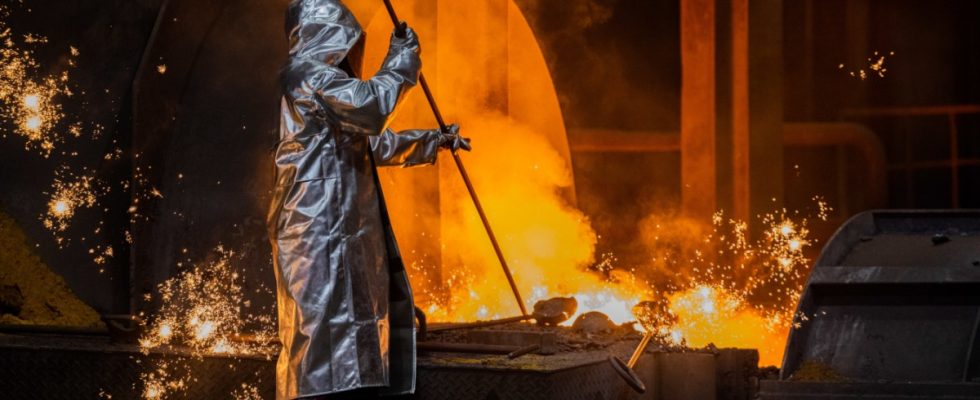The Czech is one of the richest Europeans, he collects company shares like other people collect stamps – also in Germany: Daniel Křetínský is a major shareholder in the trading group Metro, and he bought its East German lignite division from Vattenfall. The 48-year-old argued with the federal government about the end date of coal production. Křetínský and his EPH group could soon also be involved in Germany’s most important steel company. Because Thyssenkrupp is looking for buyers or at least investors for its subsidiary Thyssenkrupp Steel. From a larger field of possible interested parties, Křetínský is currently the only one left, as people around Thyssenkrupp say.
However, the Czech would not take over the entire division with its 26,000 employees, but would only receive a 50 percent share. The rest would initially remain with the parent company, the Essen-based conglomerate Thyssenkrupp. It is said that the negotiations could be completed by the end of the year – but they could also fail. First this has Handelsblatt reported on the plans.
Křetínský had long been considered an interested party, but this also applied to others, such as steel companies from Brazil, India and the United Arab Emirates or financial investors. However, their attempts to make a connection have fizzled out. Thyssenkrupp’s steel division boss Bernhard Osburg, on the other hand, commented favorably on Křetínský three weeks ago: a possible entry by the Czech has “a logic that cannot be brushed aside,” he said. At the same time, Tekin Nasikkol, the chairman of Thyssenkrupp’s corporate works council, said he had nothing “against billionaires who are willing to invest in steel,” but he wanted to see Křetínský’s concept for the division first.
In the meantime, however, the employee representatives are angry that the management’s talks about joining have taken such concrete forms without them being informed: “This is a huge burden for the coming negotiations,” Detlef Wetzel told the daily newspaper WAZ. The former chairman of IG Metall is deputy head of the supervisory board of the steel division.
High investments are necessary
The steelworks are the origin of the group; Thyssenkrupp operates the largest steelworks in Europe in Duisburg. Nevertheless, there are always discussions about separating from the division. At the turn of the millennium, the then CEO Gerhard Cromme wanted to take the division public, but this was not successful. Later mergers with rivals Tata and Liberty Steel failed. There are two main reasons why the parent company is trying so hard to spin off. The steel business is very dependent on the economy, so it brings in high profits in a boom, but quickly accumulates losses in a downturn. At the same time, high investments are necessary. There is some catching up to do here, because Thyssenkrupp made savings during the talks with Tata between 2016 and 2019.
Climate protection further increases the need for investment – and significantly so: so far, the Duisburg steelworks alone account for 2.5 percent of all German CO₂ emissions. The group will therefore have to invest billions of euros in the coming years to make steel production climate-friendly. Back in March, the company awarded the contract to replace one of the four blast furnaces in the Duisburg plant with a so-called To replace direct reduction system. It produces iron not with coke and coal, but with climate-friendly hydrogen. The federal and state governments are supporting the construction and operation of the green miracle oven with two billion euros. Politicians will therefore examine very carefully what the entry of a partner means for the location and the highly subsidized facility.
The Czech can supply green electricity
The conversion from blast furnaces to direct reduction plants will mean that the steelworks will need a lot of green electricity in the future. And that in turn is the reason why steel boss Osburg wants to see a “logic” in a partnership with Křetínský. Křetínský’s group of companies includes power plants, and the Czech wants to massively expand the production of green electricity in particular. In the future, the steel division could obtain green electricity reliably and cheaply from the co-owner.
A sticking point will be the purchase price. Thyssenkrupp’s steel division is burdened with almost three billion euros in pension obligations, which a new owner or investor will have to cover. The parent company will then be relieved of this burden. It remains to be seen whether a significant amount of money will flow beyond this.

